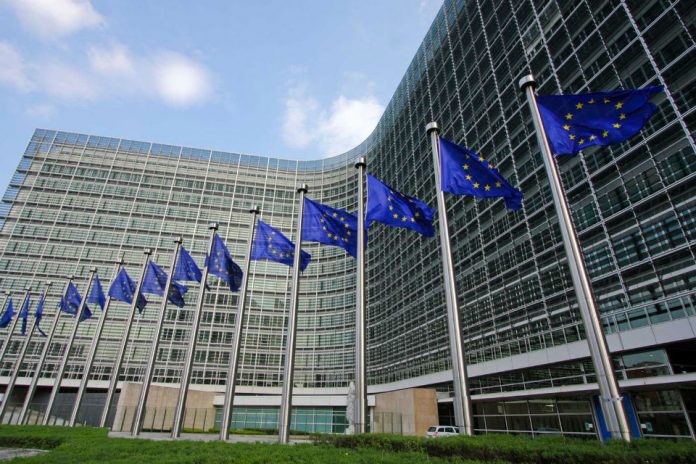The European Commission has published a Communication on managing climate risks in Europe. It sets out how the EU and its Member States can better anticipate, understand, and address growing climate risks. It further presents how they can prepare and implement policies that save lives, cut costs, and protect prosperity across the EU.
The Communication responds to the first ever European Climate Risk Assessment (EUCRA), a scientific report by the European Environment Agency. Together, they are a call to action for all levels of government, as well as the private sector and civil society. They set out clearly how all major sectors and policy areas are exposed to climate-related risks, how severe and urgent the risks are, and how important it is to have clarity on who has the responsibility to address the risks.
2023 was the hottest year on record. According to the February report by the Copernicus Climate Change Service, the global average temperature for the preceding 12 months had surpassed the threshold of 1.5 degrees set in the Paris Agreement. As the EU is taking comprehensive action to reduce its emissions and limit climate change, we must also take action to adapt to already unavoidable changes, and to protect people and prosperity. According to the Eurobarometer survey, 77% of Europeans see climate change as a very serious problem, and more than one in three Europeans (37%) already feel personally exposed to climate risks.
The Commission is proposing a series of actions and will work with other EU Institutions, Member States, regional and local authorities, citizens and businesses to follow up on these suggestions.
Equipping European society for greater climate resilience
The Commission Communication underscores how action to improve climate resilience is essential for maintaining societal functions and protecting people, economic competitiveness and the health of the EU’s economies and companies. It is also imperative for a just and fair transition. Investing upfront in reducing our vulnerability to climate risk will incur much lower costs than the sizable sums required to recover from climate impacts like droughts, floods, forest fires, diseases, crop failures or heat waves. By conservative estimates, these damages could otherwise reduce EU GDP by about 7% by the end of the century. Investments in climate-resilient buildings, transport and energy networks could also create significant business opportunities and benefit more widely the European economy, generating highly skilled jobs, and affordable clean energy.
To help the EU and its Member States to manage climate risks, the Communication identifies four main categories of action:
- Improved governance: The Commission calls on Member States to ensure that the risks and responsibilities are better understood, informed by best evidence and dialogue. Identifying the ‘risk owners’ is a critical first step. The Commission calls for closer cooperation on climate resilience between national, regional and local levels to ensure that knowledge and resources are made available where they are most effective. Climate resilience is increasingly addressed across all sectoral policies, but shortcomings persist in planning and implementation at national level. The Communication notes that Member States have taken the first steps to include climate resilience in their National Energy and Climate Plans (NECPs).
- Better tools for empowering risk owners: Policymakers, businesses, and investors need to better understand the interlinkages between climate risks, investment, and long-term financing strategies. This can provide the right market signals to help bridge the current resilience and protection gaps. The Commission will improve existing tools to help regional and local authorities better prepare through robust and solid data. The Commission and the European Environment Agency (EEA) will provide access to key granular and localised data, products, applications, indicators and services. To help with emergencies, in 2025 the Galileo Emergency Warning Satellite Service (EWSS) will become available to communicate alert information to people, businesses and public authorities even when terrestrial alert systems are down. Major data gaps will be reduced thanks to the proposed Forest Monitoring Law and Soil Monitoring Law, which will improve early warning tools for wildfires and other disasters and contribute to more accurate risk assessments. More broadly, the Commission will promote the use of available monitoring, forecasting and warning systems.
- Harnessing structural policies: structural policies in Member States can be efficiently used to manage climate risks. Three structural policy areas hold particular promise for managing climate risks across sectors: better spatial planning in the Member States; embedding climate risks in planning and maintaining critical infrastructure; linking EU-level solidarity mechanisms, like the UCPM, the EU Solidarity Fund, and Cohesion policy structural investments, with adequate national resilience measures. The civil protection systems and assets must be future-proofed, through investing in EU and Member State disaster risk management, response capacities and expertise that can be rapidly deployed across borders. This should fully integrate climate risks in the disaster risk management processes.
- Right preconditions for financing climate resilience: Mobilising sufficient finance for climate resilience, both public and private will be crucial. The Commission stands ready support Member States to improve and mainstream climate-risk budgeting in national budgetary processes. To ensure that EU spending is resilient to climate change, the Commission will integrate climate adaptation considerations in the implementation of EU programmes and activities as part of the ‘do no significant harm’ principle. The Commission will convene a temporary Reflection Group on mobilising Climate Resilience Financing. The Reflection Group will bring together key industrial players and representatives of public and private financial institutions to reflect on how to facilitate climate resilience finance. The Commission calls on Member States to take account of climate risks when including environmental sustainability criteria in competitive public procurement tenders, for instance through the Net-Zero Industry Act.




